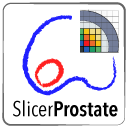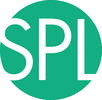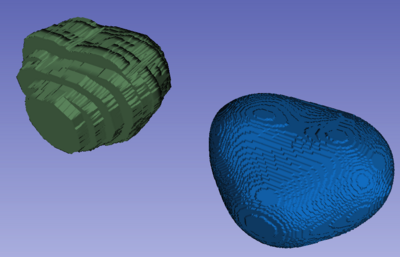Difference between revisions of "Documentation/Nightly/Modules/SegmentationSmoothing"
(Created page with '<noinclude>{{documentation/versioncheck}}</noinclude> <!-- ---------------------------- --> {{documentation/{{documentation/version}}/module-header}} <!-- -----------------------…') |
|||
| (4 intermediate revisions by the same user not shown) | |||
| Line 8: | Line 8: | ||
{{documentation/{{documentation/version}}/module-introduction-start|{{documentation/modulename}}}} | {{documentation/{{documentation/version}}/module-introduction-start|{{documentation/modulename}}}} | ||
{{documentation/{{documentation/version}}/module-introduction-row}} | {{documentation/{{documentation/version}}/module-introduction-row}} | ||
| − | |||
| + | {| | ||
| + | | | ||
| + | [[Image:SlicerProstate_Logo_1.0_128x128.png]] | ||
| + | | | ||
| + | Extension: [[Documentation/{{documentation/version}}/Extensions/SlicerProstate|SlicerProstate]]<br> | ||
Acknowledgments: | Acknowledgments: | ||
| − | This work | + | This work supported in part the National Institutes of Health, National Cancer Institute through the following grants: |
| + | * Quantitative MRI of prostate cancer as a biomarker and guide for treatment, Quantitative Imaging Network (U01 CA151261, PI Fennessy) | ||
* Enabling technologies for MRI-guided prostate interventions (R01 CA111288, PI Tempany) | * Enabling technologies for MRI-guided prostate interventions (R01 CA111288, PI Tempany) | ||
* The National Center for Image-Guided Therapy (P41 EB015898, PI Tempany) | * The National Center for Image-Guided Therapy (P41 EB015898, PI Tempany) | ||
* [http://qiicr.org Quantitative Image Informatics for Cancer Research (QIICR)] (U24 CA180918, PIs Kikinis and Fedorov).<br> | * [http://qiicr.org Quantitative Image Informatics for Cancer Research (QIICR)] (U24 CA180918, PIs Kikinis and Fedorov).<br> | ||
| − | |||
Authors: Andrey Fedorov ({{collaborator|name|spl}}), Andras Lasso (Queen's University)<br> | Authors: Andrey Fedorov ({{collaborator|name|spl}}), Andras Lasso (Queen's University)<br> | ||
Contact: Andrey Fedorov, <email>fedorov@bwh.harvard.edu</email><br> | Contact: Andrey Fedorov, <email>fedorov@bwh.harvard.edu</email><br> | ||
License: [http://www.slicer.org/pages/LicenseText Slicer License] | License: [http://www.slicer.org/pages/LicenseText Slicer License] | ||
| + | |} | ||
{{documentation/{{documentation/version}}/module-introduction-logo-gallery | {{documentation/{{documentation/version}}/module-introduction-logo-gallery | ||
| Line 34: | Line 39: | ||
{| | {| | ||
|This module can be used to generate a smooth surface segmentation for datasets that were segmented on images with large slice thickness, leading to "staircase" effect. This module was motivated by the need to generate smooth segmentations for prostate MRI images, which typically have high in-plane resolution (0.5mm) relative to the slice thickness (3mm). | |This module can be used to generate a smooth surface segmentation for datasets that were segmented on images with large slice thickness, leading to "staircase" effect. This module was motivated by the need to generate smooth segmentations for prostate MRI images, which typically have high in-plane resolution (0.5mm) relative to the slice thickness (3mm). | ||
| + | |||
| + | The module operates by resampling the input to isotropic voxel resolution and applying Gaussian smoothing to the resampled image. Note that the resulting image will have larger size than the input. | ||
| [[File:SegmentationSmoothing_example1.png|thumb|400px|Visualization of the segmentation surface before (green) and after (blue) smoothing using this module. Surfaces for this example were generated without using any decimation or smoothing in the ModelMaker module.]] | | [[File:SegmentationSmoothing_example1.png|thumb|400px|Visualization of the segmentation surface before (green) and after (blue) smoothing using this module. Surfaces for this example were generated without using any decimation or smoothing in the ModelMaker module.]] | ||
|} | |} | ||
| Line 47: | Line 54: | ||
None at this time ... stay tuned! | None at this time ... stay tuned! | ||
| − | |||
| − | |||
| − | |||
| − | |||
| − | |||
| − | |||
| − | |||
{{documentation/{{documentation/version}}/module-parametersdescription}} | {{documentation/{{documentation/version}}/module-parametersdescription}} | ||
| − | |||
<!-- ---------------------------- --> | <!-- ---------------------------- --> | ||
Latest revision as of 14:01, 4 January 2016
Home < Documentation < Nightly < Modules < SegmentationSmoothing
|
For the latest Slicer documentation, visit the read-the-docs. |
Introduction and Acknowledgements
|
Module Description
| This module can be used to generate a smooth surface segmentation for datasets that were segmented on images with large slice thickness, leading to "staircase" effect. This module was motivated by the need to generate smooth segmentations for prostate MRI images, which typically have high in-plane resolution (0.5mm) relative to the slice thickness (3mm).
The module operates by resampling the input to isotropic voxel resolution and applying Gaussian smoothing to the resampled image. Note that the resulting image will have larger size than the input. |
Use Cases
- MRI-ultrasound fusion biopsy of the prostate (primary)
- therapy planning
- treatment response assessment
Tutorials
None at this time ... stay tuned!
Parameters:
- IO: Input/output parameters
- Input label (inputImageName): Input segmentation label
- Output label (outputImageName): Smoothed segmentation label
- Label to process (labelNumber): Label to smooth in the input label image. Default value of -1 will threshold the input image between 1 and 255 and will apply smoothing to the result.
List of parameters generated transforming this XML file using this XSL file. To update the URL of the XML file, edit this page.
Similar Modules
References
[1] Fedorov A, Khallaghi S, Antonio Sánchez C, Lasso A, Fels S, Tuncali K, Neubauer Sugar E, Kapur T, Zhang C, Wells W, Nguyen PL, Abolmaesumi P, Tempany C. (2015) Open-source image registration for MRI–TRUS fusion-guided prostate interventions. Int J CARS: 1–10. Available: http://link.springer.com/article/10.1007/s11548-015-1180-7.
[2] Fedorov A, Nguyen PL, Tuncali K, Tempany C. (2015). Annotated MRI and ultrasound volume images of the prostate. Zenodo. http://doi.org/10.5281/zenodo.16396




